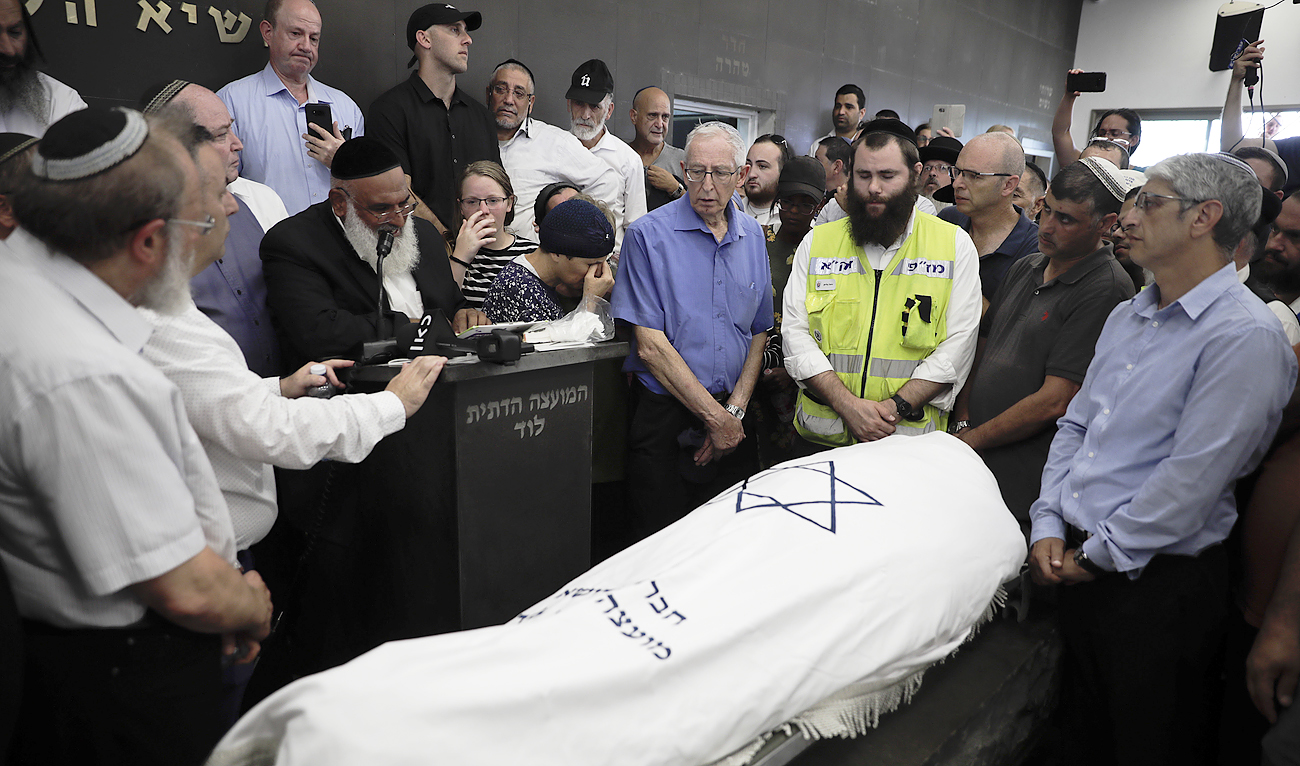ALMOG, Palestinian Territories: At his farm near the Dead Sea in occupied Palestinian territory, Israeli Guy Erlich remixes blends of perfume and incense that he believes were used by royalty in the biblical era.
He claims to have re-created a scent that Cleopatra may have dabbed on her skin and oils that anointed ancient Jewish kings.
With a passion for ancient plants, Erlich set out in 2008 to try to grow them himself to turn into fragrances and other products, on a small hill in the West Bank, near the Israeli settlement of Almog.
He now cultivates around 60 biblical plants, from which he creates creams, perfumes, soap and honey, and attracts tourists who come to learn about the rare plants and take in their scents.
Erlich, 48, dreams of bringing back into widespread circulation the balm of Gilead, used medicinally during the ancient Roman era and referenced in the Bible.
He’s even named his farm after it.
The balm is thought to have been used by the ancient Greek physician, Galen, to heal infections and wounds, he says.
He mentions Jewish teachings from the Talmud and Christian sources that name it.
A farmer before making a job out of his fascination for biblical agriculture — some of which has long disappeared — Erlich says he has read everything he can find on the subject.
Elaine Solowey, a desert agriculture specialist at Israel’s Arava Institute for Environmental Studies, helped him to identify some of his plants.
Speaking to AFP, she said that she could not say for sure if Erlich’s plants were those found in biblical times since more research was necessary.
“The species produced by Mr.Erlich are probably those cultivated in the region during antiquity, but we can’t be certain,” Solowey said.
“Many plant species mentioned in the Bible have disappeared and it is vital that we figure out how to study the subject,” she said, adding that more funding was needed.
Erlich makes honey with the flowers of Boswellia trees that yield frankincense — one of the offerings to the baby Jesus in the Bible’s New Testament.
The trees grow in places like Somalia, Yemen, Ethiopia and Oman but Erlich has planted them at his Balm of Gilead Farm.
For now, the small leafed species takes up only a limited part of his farm, but the honey he produces sells at a premium price: $1,000 (900 euros) per kilogram.
The farm is currently quite spartan and he hopes in time to be able to develop his tourist center, a simple, wooden structure that shields visitors from the sun next to his fields.
Wearing boots and a large hat, he explains to visitors the story behind each plant and its name.
Erlich is seeking to attract investors but says it is difficult since his farm is in occupied territory.
For Palestinians, his work has more than a whiff of controversy, given the location of the farm.
Abdallah Abu Rahma, a Palestinian Authority official who monitors Israeli settlements, was unequivocal when asked about the project.
“Everything produced in the settlements is illegal,” he said. “That’s why we call for a boycott of such products.”
Settlement expansion has accelerated under Israeli Prime Minister Benjamin Netanyahu, a policy that detractors say reduces the chances of a two-state solution to the Jewish nation’s conflict with the Palestinians.
But Erlich is undeterred.
Noting the ancient Egyptians’ use of fragrances and the possibility that several of the plants he grows were used at that time, he advertises his perfume as a type used by Cleopatra.
“Offer your wife Cleopatra’s perfume, the fragrances of antiquity, the scents of Rome,” he tells visitors.
Erlich also claims to have re-created fragrances used at the time of the two biblical-era Jewish temples, the first destroyed by the Babylonians in 587 BC and the second by the Romans in 70 AD.
“On your right hand, you have the scent of the first temple, on the left hand the second temple, and if you rub them against each other, you will smell the incense that will be burned in the third temple,” Erlich said.
According to Jewish tradition, the third temple will be built when the Messiah comes.
Erlich sells his products from his farm.
He has so far sold four kilos (8.8 pounds) of his frankincense honey in 30-gram (one-ounce) bottles and hopes to increase production.
Visitors can also buy a five-milliliter (0.2 ounce) bottle of fragrance for 100 shekels ($29, 26 euros).
“These products have a history, a specificity,” he said. “They are unique.”




